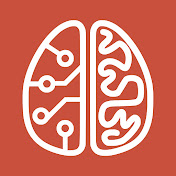| The University of Tübingen's Self-Driving Cars Course |
| Written by Nikos Vaggalis | |||
| Friday, 22 March 2024 | |||
|
The recorded lectures and the written material of a course on Self-Driving Cars at the University of Tübingen have been made available for free. It's a first class opportunity to learn the in and outs of how to develop the software that powers self-driving cars. Self-Driving is a topic of hot debate. Initially it had been heralded as the white knight of the big city that would decongest the streets, lower the risk of accidents, provide mobility for elderly and people with disabilities and decrease pollution for a more healthy environment. But after crashes, fatalities and malfunctions, some said that a fully autonomous cars might just be a dream that will never come to fruition. After all building the brains for such version of a car is not the easiest thing in the world. Fear not though; this course taught at the University of Tübingen by Prof. Andreas Geiger has been made freely available to everyone in an attempt to collectively push things forward. And is taught under a novel approach too, that of the 'flipped' classroom. This means that the lectures are provided via YouTube and must be watched before the respective interactive live sessions. Interactive live sessions is where questions regarding the lecture and exercises are posed and discussed together. As such the recorded sessions and the related material have been made available;the interactive ones are privilege of the College's students attending the class on premises. The goal of the course it to develop an understanding of the capabilities and limitations of autonomous driving solutions and gain a basic understanding of the entire system comprising
The topics discussed from a birds eye view are:
That list might give the impression of something too complicated, but at the most basic level self driven cars rely heavily on cameras to observe the road and its obstacles, with some models maybe even carrying at least 20+ cameras. Secondly, what's needed is the LiDAR which is sensors that fire pulses at objects and record the time it takes to bounce off those objects in order to create a 3D map of the surroundings of the car. And finally it's how those cars learn, which poses as the starting point of the course after the Introduction, in Lecture 2-Imitation Learning: Approaches to Self-Driving. That is also the most important lecture in order to get a grasp of the context. The rest of lectures just build on the fundamentals: Lecture 3 is about Direct Perception The crisp material is further enhanced by the Professor's high level of conveyance, which wraps up a fine course on a state of the art topic. Plus it's been taught by a respectable University and also free! What else could you ask for? More InformationSelf-driving cars Youtube playlist
Related ArticlesArtificial Intelligence, Machine Learning and Society
To be informed about new articles on I Programmer, sign up for our weekly newsletter, subscribe to the RSS feed and follow us on Twitter, Facebook or Linkedin.
Comments
or email your comment to: comments@i-programmer.info |
|||
| Last Updated ( Friday, 22 March 2024 ) |


